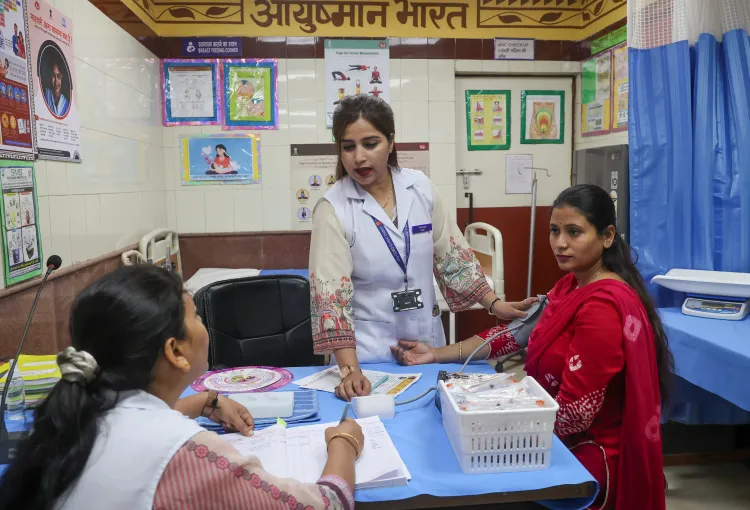Have the norms for opening Jan Aushadhi Kendras in metro and 'million-plus cities' been eased by the government?

Synopsis
Key Takeaways
- Relaxed distance norms for Jan Aushadhi Kendras in metropolitan areas.
- Improved access to affordable medicines.
- Changes apply to cities with populations over one million.
- Current regulations remain for smaller towns.
- Over 16,912 JAKs established since 2014.
New Delhi, Sep 12 (NationPress) The Union government has relaxed the rules for establishing Jan Aushadhi Kendras (JAKs) by eliminating the minimum-distance requirements in metropolitan areas and cities with populations exceeding one million, as reported by media sources.
This change in distance regulations is expected to enhance the reach of the pharmacy network, which aims to deliver quality medications at affordable prices to the populace.
The report referenced an internal document released on September 10 by the Pharmaceuticals & Medical Devices Bureau of India (PMBI), the organization responsible for executing this initiative.
“To improve public access, equitable distribution, and broader outreach of Jan Aushadhi Kendras, particularly in heavily populated urban areas, modifications to the existing guidelines concerning minimum-distance requirements have been made,” the document stated.
According to the document, “there will be no mandate to maintain minimum distance between any two Jan Aushadhi Kendras in seven metropolitan cities -- Delhi, Mumbai, Kolkata, Chennai, Bengaluru, Hyderabad, and Ahmedabad.”
Furthermore, this relaxation will extend to cities with populations exceeding one million, based on the 2011 Census – termed 'Million-Plus Cities'. In these urban centers, maintaining a minimum distance will not be necessary, except in instances where a Jan Aushadhi Kendra is less than two years old, as per the report.
The list of million-plus cities includes 46 urban agglomerations, featuring significant locations such as Pune (5.05 million), Surat (4.59 million), Jaipur (3.07 million), Kanpur (2.92 million), Lucknow (2.9 million), Nagpur (2.5 million), Ghaziabad (2.36 million), Indore (2.17 million), Coimbatore (2.15 million), and Kochi (2.12 million).
For smaller towns and other urban regions not included in these categories, the current regulations will remain unchanged, according to the report.
From a mere 80 in 2014, a total of 16,912 JAKs have been established under the flagship program, the Pradhan Mantri Bhartiya Janaushadhi Pariyojana (PMBJP), as of June 30. This initiative has significantly improved access to essential medicines and decreased out-of-pocket expenses for consumers. These government-run pharmacies offer generic medications that are priced lower but match the quality and effectiveness of more expensive branded alternatives.










